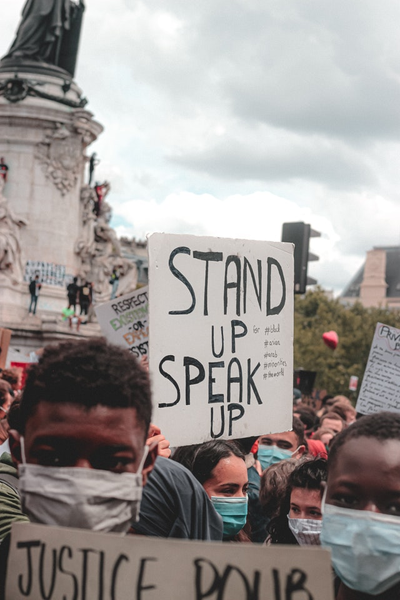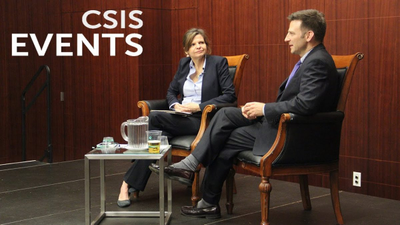‘A stitch in time saves Addis’ – Call to African Governments – On July 13th to the 16th 2015, Heads of States, Government High Representatives, Civil Society, Private sector and other stakeholders met in Addis Ababa for the third International Conference on Financing for Development. This platform is a concise follow-up from the momentum built at the preceding Monterrey Consensus in 2002 and the Doha Declaration in 2008. With the target of achieving the Sustainable Development Goals (SDGs) with an ambitious overall vision to end Global Poverty by 2030, there sure is a dire need to come up with creative and feasible financial instruments to ensure these goals do not end up as mere rhetoric. If there is one landmark achievement that emerged from the discussion, it is that the tone of debate has shifted from aid to economic growth. The ideology is somewhat a great step as it reflects the notion of “working together” and not “working for another”. Developed nations and their developing counterparts have found a common ground for development assistance. While aid will not be discarded, keener attention will be placed on leveraging on the potential of tools such as Foreign Direct Investments (FDI) and Remittances.
As far as the Addis Action Agenda (AAA) is concerned, Sub-Saharan Africa will play a huge role in delivering the dividends because of obvious challenges and potentials inherent within her territory. As of 2011, according to global statistics and ones provided by the World Bank, the continent has the top poorest countries (GDP per capita) and has 46.8% of her population within the poverty headcount. Nevertheless, six out of the world’s ten fastest growing economies emerged from the continent over the last decade, which also shows that there is a great potential to increase that number in the coming decade.
With these statistical figures and high level meetings being held, the question to explore is what does Addis mean for African nations? In answering this question, it must be noted that there are positive, as well as negative aspects that intertwine this question. The positive aspect is that there is an inspiring BROAD AGENDA to ensure that economic growth is fostered but unfortunately a negative aspect of this broad agenda is that there is NO BINDING AGREEMENT YET.
Nonetheless, we have shifted the development discourse from sole reliance on external forces as a means to development to self-reliance through internal forces. To reach inwards and achieve sustainability, it is imperative to note that some changes will have to occur within Africa while the continent awaits stronger and measurable commitments to be made on the global landscape. I resonate with a view highlighted by a recent post on the Centre for Global Development stating that the crux of the issue ‘won’t be about the absence of willingness of the international community to invest but lack of investible propositions by the developing world’. Furthermore, vices such as inappropriate public management, bad governance and poor project monitoring are some of the threats that can prevent the positive delivery on the SDGs in the African polity. Henceforth, internal stitches will have to be looked upon to ensure the ‘financial rain’ does not constitute a greater burden when it meets an unprepared continent.
A strategic focus in the mandate in Addis was hinged upon the creation of six hundred (600) million new jobs in the next fifteen years. Let us quickly take a look at well-known facts within Africa and its interconnection with the world as far as this goal is concerned.
- 41% of the world’s youth will be African in the next three generations according to a report by the Mo Ibrahim Foundation
- More than half of Africa’s unemployed are aged 15 to 24 (youths) according to the Africa Economic Outlook (2012)
- With almost 200 million people aged between 15 and 24, Africa has the youngest population in the world according to the African Economic Outlook (2012)
If the world must truly meet the target of creating six hundred million new jobs by 2030, there is no dispute to the crucial role African governments must play as the continent constitutes a large bulge (which is still growing) of unemployed young people.
In the words of Babatunde Osotimehin the executive director of the United Nations Population Fund (UNFPA) – “Africa’s population structure today has 65 per cent of its population below the age of 30. There is no way both private and public sector can provide jobs that young people need in the continent,”
The next question to ask is ‘how can African nations begin to lead the way in a positive light, in order to meet and reach the employment goals, as well as the demands of the SDGs?’
The African Development Bank (AfDB) report ‘Recognizing Africa’s Informal Sector’, illustrates aptly that “Unemployment remained high among youth and the adult African population. Little attention has been paid to the role of informal sector in fostering growth and creating jobs. In fact, the informal sector contributes about 55 per cent of Sub-Saharan Africa’s GDP and 80 per cent of the labour force. Nine in 10 rural and urban workers have informal jobs in Africa and most employees are women and youth.”
I believe that we do have an untapped pool of enormous potentials within the Small and Medium Scale Enterprises (SMSEs) to critically reduce unemployment and lift a good chunk of the populace out of poverty. To adequately ensure that Addis implementation meets an equipped continent, the following are few stitches (adjustments) that the continent needs to make:
Accurate Data Analysis and Accessibility: Although the AAA already rightly identifies the need to integrate tools to turn data into useful information, accessibility is still a luxury in most African terrains. Young people should be able to access information cheaply and efficiently; offline and online, regardless of their educational background when it comes to starting any particular venture.
Support Informal learning platforms: While there is much emphasis on the university education which has only supported infiltration of young people into universities at the expense of vocational training institutes, there is a need for a paradigm shift backed with strategic policy frameworks. All stakeholders especially the private sector need to support governmental interventions and build back the prestige that was once associated with informal learning platforms such as vocational training centres.
Investment in infrastructures: In a bid to promote enterprise development so as to foster job creation, sustainability of SMEs still lies within a business-friendly atmosphere. Investments in infrastructures such as power and internet accessibility will go a long way in reducing the potential failure of most SMEs after their early years of entry into the market. According to a comprehensive research conducted by the Tony Elumelu Foundation on African Entrepreneurship “63 percent of respondents said that government needs to “improve the general quality of infrastructure” as a key to reducing overall costs which are hurting their competitiveness.”
In conclusion, it is exigent to create an understanding that “making more of these stitches” and other strategic moves in the time being in Africa is not all about spending, but it is also a means to create an internal domestic resource pool to meet up with the demand of attaining the SDGs. The AAA is clear on how revenue administration will be modernized through progressive tax policies and more efficient collection. Giving the platform for more SMEs to thrive implies that there will be a greater access to a pool of domestic finance through taxation which will support the Official Development Assistance (ODA) in implementing the SDGs in Africa.
Abiodun Dominic Odunuga
Development Practitioner and Serial Social Entrepreneur
Photo source: UNEP, Addis Ababa


